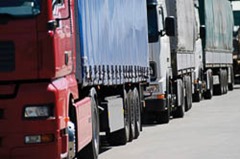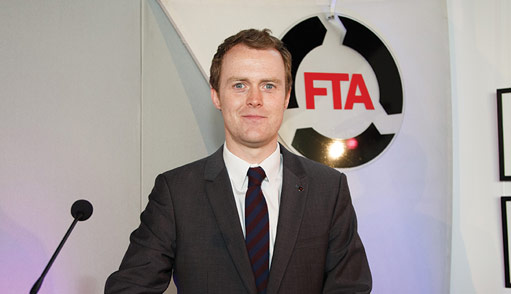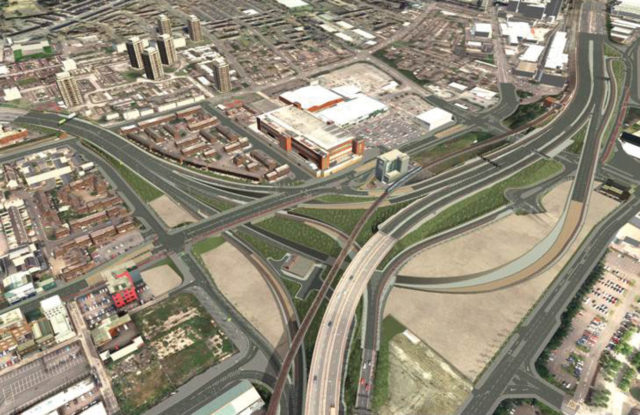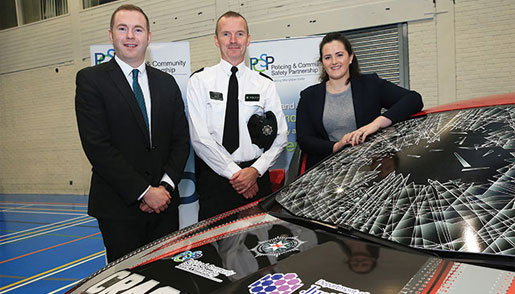Levying HGVs
 Northern Irish hauliers claim that the new HGV levy represents fairer taxation but their southern counterparts see it as a costly tariff.
Northern Irish hauliers claim that the new HGV levy represents fairer taxation but their southern counterparts see it as a costly tariff.
The UK Government introduced the heavy goods vehicle road user levy on 1 April 2014 for vehicles, weighing 12 tonnes or more, which cause the most wear and tear on the road network.
This policy is a response to the Road Haulage Association’s calls for charges on non-UK hauliers as a matter of fairness: the same charges are imposed on UK hauliers in some European countries.
“Visiting hauliers are legally required to contribute to the cost of our roads for the first time,” an RHA spokesman said. “It also does what is possible, within EU law, to level the playing field between UK hauliers and those from the continent and Ireland.”
Levy amounts vary according to the weight and axle configuration of the vehicle, and are paid – alongside vehicle excise duty – to the Driver and Vehicle Licensing Agency (DVLA). The latter duty has been reduced to make the overall change cost-neutral for most UK HGVs.
Vehicles registered elsewhere, including those in the Republic, must pay before entering the UK either for a day, week, month or year – with discounts available for longer levy periods.
The least expensive band (A) ranges from £1.70 per day to £85 per year while the rates for the most expensive band (G) are £10 per day and £1,000 per year.
Non-UK payments are processed for the Department of Transport by Northgate Public Services and can be made online, by telephone or in person at one of 40 points of sale.
Eight of these are at Topaz service stations in the Republic i.e. Letterkenny, Lifford, Dundalk, Monaghan, Sligo, Cavan, Dublin and Rosslare. A further point is available at the Motis FSA Ireland office in Newry.
No physical discs are issued but payment is recorded in a database using the vehicle registration as the unique identifier. Failure to pay is a criminal offence, attracting a £300 fixed penalty notice and the penalty can rise to £5,000 if the driver is found guilty in court.
Enforcement is carried out in Northern Ireland by the Driver and Vehicle Agency and the PSNI. Two roads are exempted – the A3 near Clones and A37 between Dundalk and Castleblaney – as they connect parts of the Republic but pass through Northern Ireland. The Executive and the Irish Government had sought an exemption for the A5 but this was turned down; a large number of hauliers were likely to choose the road to avoid payment.
The Irish Road Haulage Association opposes the levy, citing existing financial difficulties for its members.
Sinn Féin claims that it acts as a barrier to cross-border mobility and trade, and tabled a motion on the issue at the Assembly on 12 May. The SDLP shares that view and Minister Mark H Durkan has been lobbying for the A5’s exemption.
During the debate, the DUP’s Pam Cameron said that a genuine cross-border level playing field was needed as northern hauliers’ fuel was more expensive and they received no exemptions from southern road tolls. She noted the support for the levy within the industry.
The UUP’s Tom Elliott said that the levy provided a “level of equality” among British, Irish and European haulage businesses. Alliance MLA Anna Lo said that the thrust of the motion, to protect the interests of Irish hauliers, could indirectly discriminate against hauliers from other EU member states. The motion was defeated by 39 votes to 32.





